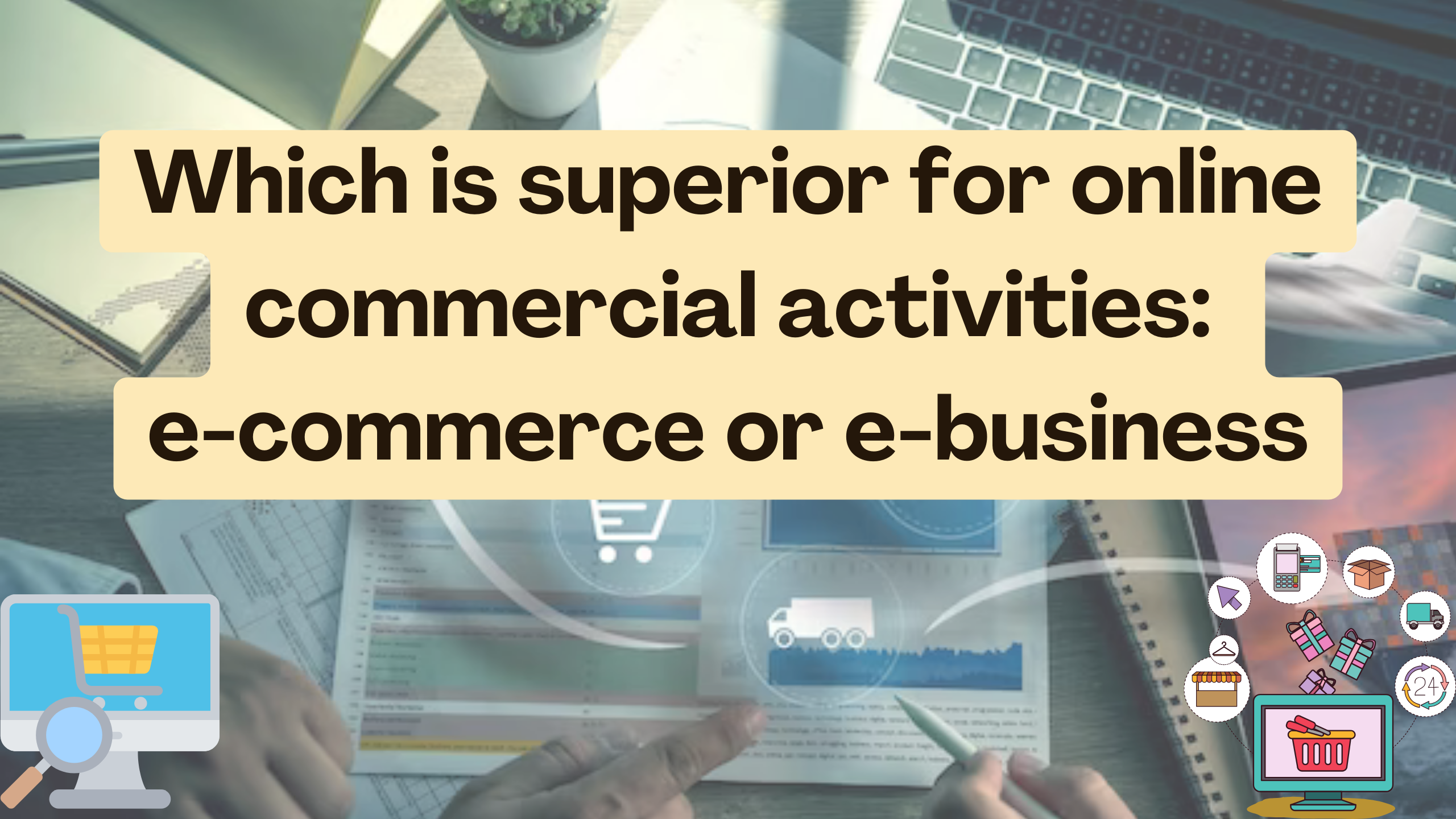Which is superior for online commercial activities: e-commerce or e-business


Which is Superior for Online Commercial Activities: E-commerce or E-business?
In the digital age, businesses face the crucial decision of choosing between two powerful models for online commercial activities: E-commerce and E-business. This article aims to explore the distinctions between these approaches, shedding light on their strengths and applications. As we navigate through this comparison, we’ll also introduce relevant SaaS products that can enhance and streamline these online business strategies.
Understanding E-commerce and E-business
E-commerce:
E-commerce, short for electronic commerce, specifically refers to the online buying and selling of goods and services. It typically involves transactions between businesses and consumers (B2C), businesses and businesses (B2B), or consumers and consumers (C2C).
E-business:
E-business, on the other hand, encompasses a broader spectrum. It not only includes online transactions but also incorporates various online business processes, such as customer relationship management, supply chain management, and online collaboration.
Exploring Relevant SaaS Products
To support and optimize your chosen online commercial strategy, consider incorporating the following SaaS products:
- Shopify: A comprehensive e-commerce platform suitable for businesses of all sizes.
- BigCommerce: A scalable e-commerce solution that integrates seamlessly with various business applications.
- Magento: An open-source e-commerce platform known for its flexibility and customization options.
- Salesforce: A powerful CRM platform that aids in managing customer relationships and business processes.
- Zoho Commerce: A complete e-commerce solution integrated with tools for inventory management, order fulfillment, and more.
- HubSpot: A comprehensive inbound marketing and sales platform for holistic business management.
(Include additional products as per requirement, with respective links)
E-commerce vs. E-business: Making the Decision
E-commerce:
- Strengths:
- Focused on transactions, ensuring a seamless buying and selling process.
- Ideal for businesses primarily involved in retail or product-based sales.
- Limitations:
- May lack the broader business process integration seen in E-business.
E-business:
- Strengths:
- Encompasses a wide range of business processes, promoting overall efficiency.
- Suitable for businesses with complex operations and varied service offerings.
- Limitations:
- The extensive scope may lead to a steeper learning curve and implementation challenges.
Conclusion
Choosing between e-commerce and e-business depends on the nature and goals of your online commercial activities. For businesses primarily focused on transactions, e-commerce may be the superior choice. However, those seeking comprehensive business process integration and efficiency may find e-business to be the more suitable approach. As you make this crucial decision, consider the relevant SaaS products introduced in this article and leverage Subscribed.FYI to streamline your SaaS subscription stack.
For businesses aiming to optimize their SaaS stack, Subscribed.FYI offers a centralized platform to understand, compare, and manage subscriptions. Unlock exclusive deals, save on SaaS tools, and effortlessly manage subscriptions in one place.





